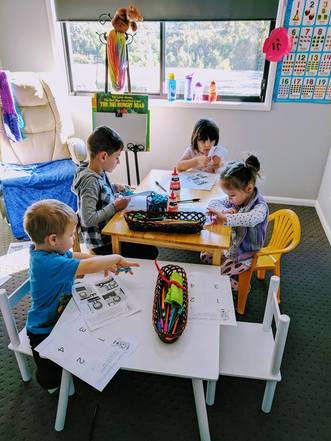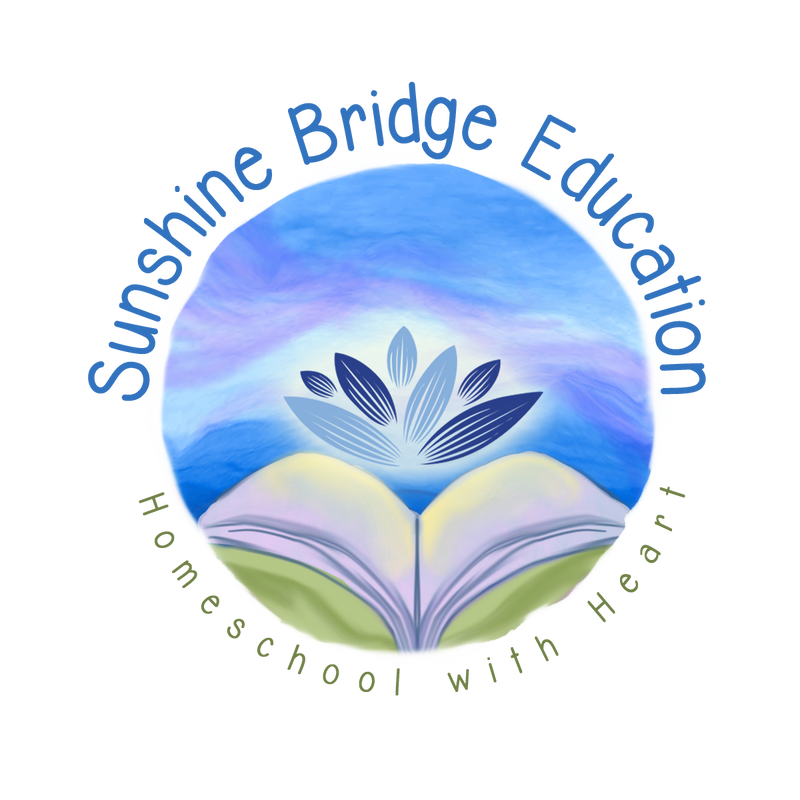|
"Montessori is a method of education that is based on self-directed activity, hands-on learning and collaborative play. Children make creative choices in their learning, while the adults offers age-appropriate activities to guide the process." - The Montessori Network
I love this explanation. Self-Directed Activity can work so beautifully in English and Mathematics (and other areas) if parents and tutors provide good quality (not necessarily expensive) age (or level) appropriate resources. Children and young adults feel empowered in their education when provided with choice. They will choose what they would like to learn. The adult must step back, only stepping in to ask, "What are you learning today?" Young people will ask for help when needed on the task ... they will quickly find where they sit in relation to the zone of proximal development. "Montessori is an approach to education based upon the principle that schooling should work with the nature of the child, instead of against it. Therefore, education should be based upon scientific study of the child and a resulting understanding of the processes of development and learning." - The Montessori Institute In order to nail this element, learning about lifespan development is imperative - getting to know where children and young adults are at, and meeting them there, will make life easier for everyone! For example, a guided meditation to do with the heart would be wonderful for a 7-year-old, but you're better off teaching a 14-year-old the biological mechanics of how the heart works. This website provides a good start: Stages of Growth Montessori Education can also be fed into the weekly timetable as part of the rhythm. A variety of parent/tutor driven activities alongside the student-driven approach can be magic. Do what works for you, but please, give it a try! Hayley
0 Comments
One on one tutoring is wonderful. The student has the attention of the tutor for the whole session. Much is learned! However, there's something even more wonderful about small group tutoring that might make it more beneficial for some.
1. Connection Students can chat, connect, and make friends. This builds their confidence and makes the space a safe place to visit. 2. Group work! Learning in groups is fantastic when it comes to brain-storming, games, and using the imagination, not to mention how it helps with speech, language and communication skills. Students can work as a team or work quietly side by side. 3. Positive Influence Students influence each other in positive ways. It's almost a little bit magic. 4. Motivation Students motivate each other in ways that adults can not! We can use incentives for our young people, but there's nothing more motivating than a peer telling you, 'you can do it.' - Hayley I have had the pleasure of working with ASD students (people on the awesome spectrum, as one of the parents whose children I tutor recommend we call it - love it) for over 13 years.
In my capacity as an educator there are several things I have noticed that can help with making positive connections and building rapport. Here they are! -Allow Time and Space allow students to come to you and open up in their own time. Be yourself. Be consistent. You will grow on them. -Use Humour hopefully as a educator or parent you're already funny. But if not, dad jokes go a long way. Making light of situations and life in general is good for us ALL. -Allow comfort objects please allow young people to bring their comfort object with them wherever they need to take them. Arrange spaces for them and make it special. Their items might be very dear to them, and they can help when a young person is feeling overwhelmed. -Watch for overstimulation don't use touch (even high fives) or overstimulate with noise. An assault on the senses isn't a good condition for anyone to be working in, anyway. -Let it go if a tutoring session or homeschool lesson rolls by without much of anything getting done, Let it go. Move on. Stay positive for the next session. -Mind your jokes while joking and light-heartedness are a must, be careful not to be sarcastic. Young people (all of them) tend to take things literally. The Awesome Spectrum is a beautiful thing. It, along with many other things, brings diversity to the world - and there's nothing more wonderful than that. Feel free to leave more tips in the comments! Hayley Repost by The Speech Language and Audiology Association of Trinidad and Tobago (SLAATT) https://thecren.com/index.php/blog/191-the-importance-of-speech-and-language-development-in-a-child-s-early-years
What should I do if my child's speech or language appears to be delayed? You should talk to your family doctor if you have any concerns about your child’s speech or language development. Your doctor may decide to refer you to a speech-language pathologist/therapist/clinician, a health professional trained to evaluate and treat people who have speech, language, voice or swallowing disorders (including hearing impairment) that affect their ability to communicate. The speech-language pathologist will talk to you about your child’s communication and general development. He or she will also evaluate your child with special speech and language tests. A hearing test is often included in the evaluation because a hearing problem can affect speech and language development. Speech-language pathologists/therapists/clinicians assess, diagnose, treat, and help to prevent disorders related to speech, language, cognitive-communication, voice, swallowing and fluency. They work with:
|
Photo from Tambako the Jaguar



 RSS Feed
RSS Feed
